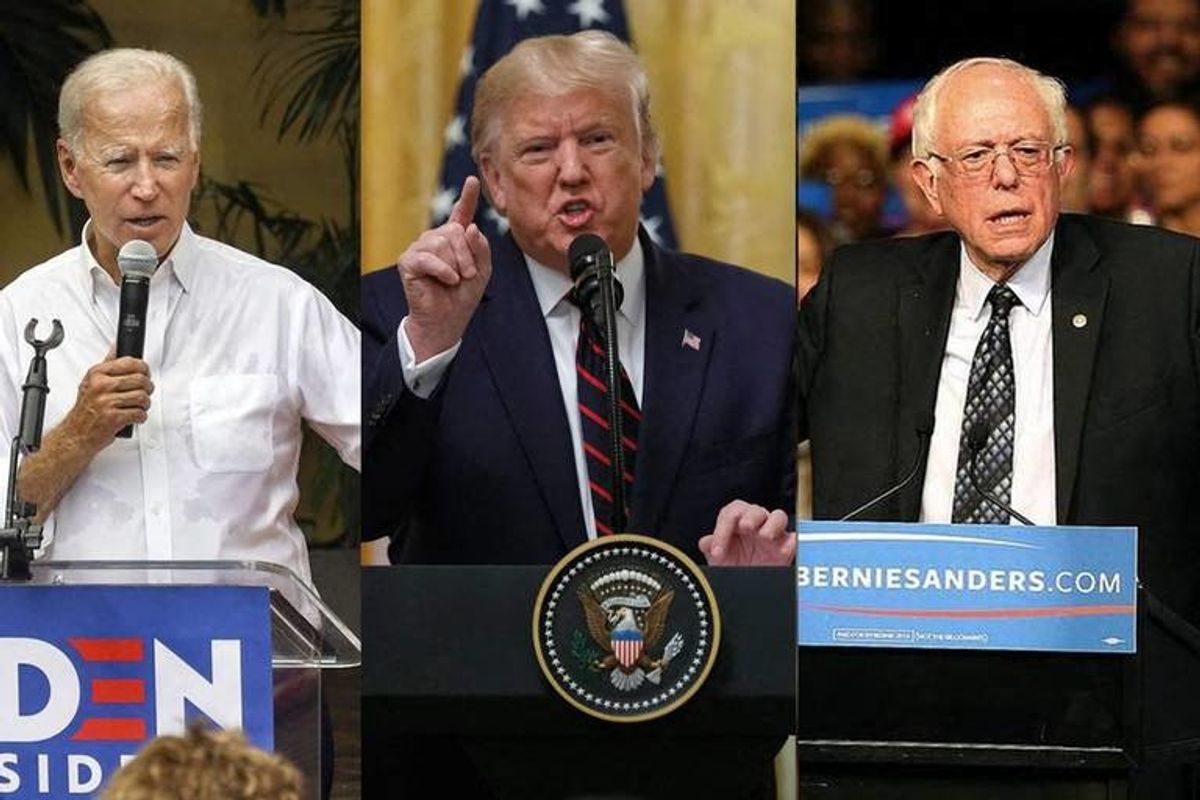The US presidential matchup is now all but set. Short of a personal health crisis, Joe Biden will be the Democrat who battles Donald Trump in November. What should we expect from that race?
History teaches us that the candidates with the most cash and the best campaign organizations tend to win—and that debate performances, choice of running mates, and the spectacle of party nominating conventions matter less.
No one can say whether coronavirus will still be infecting a large number of Americans in six months. But if it is, we might have to throw all the conventional wisdom about elections out the window. Sure, US voters and candidates have navigated election year crises many times before, but the impact of Covid-19 on the physical realities of campaigning would be unprecedented in the modern era. Here's how:
The conventions – Although the spectacle of the summer conventions is generally long forgotten by election day, they do provide an important national stage for the candidates to generate excitement and highlight the key messages of their campaigns. This is particularly important for a candidate running against a sitting president. But coronavirus might well cause the conventions to be cancelled. Crucially, since Biden and the Democrats are scheduled to go first – in mid July – they have less time to decide on whether to hold the event. The Republican convention is in August.
Money – Candidates generally have to spread their campaign war chests over a large number of states. For now, President Trump has a huge advantage in money and campaign infrastructure. But as presumptive nominee, Biden will soon have the full resources of the Democratic Party behind him—and his billionaire former rival Mike Bloomberg looks set to help by spending big on advertising in the 6-8 most competitive states (see here).
Coronavirus can make a difference here too. By limiting the number of rallies and other public appearances Trump and Biden can make, the virus could allow both campaigns to focus their resources more on key battleground states. Shrinking the arena of competition means both sides will have more than enough money to win.
Debates – The historical evidence says that debate performances rarely (if ever) make a decisive difference in presidential election outcomes (see here). But if coronavirus lasts long enough to cancel rallies and the conventions, the televised debates will become the only high-profile opportunity to see the two candidates on live TV.
Running mates – There is little evidence that the choice of vice presidential running-mate matters much for election results. (See here). But when two men in their 70s face the stresses of running for president during a national health crisis, voters might take more interest in the people who would stand next in line.
In the end, the 2020 US presidential election will probably come down to two questions:
1. Can Joe Biden unite Democrats? In 2008, Barack Obama overcame resistance from some disgruntled Hillary Clinton supporters who had formed a group called "Party Unity My Ass." In 2016, Clinton failed to persuade supporters of Bernie Sanders to vote for her in large enough numbers in key states. For now, everyone should assume that Republican voters show up en masse to vote for Trump. To win, Biden must now find a way to appeal to at least some skeptical Sanders voters.
2. Can President Trump offer the leadership needed to ensure that coronavirus doesn't erase the economic gains that are central to his appeal for many voters? Can he manage the health crisis in a way that doesn't undermine public confidence in his competence?
Let the race begin.






